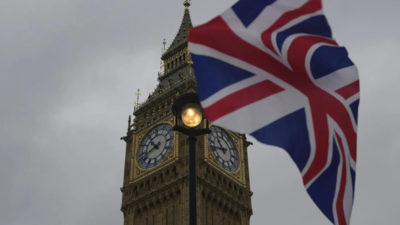U.K. PM Starmer’s welfare bill passes second reading after heavy concessions to avert rebellion

British Prime Minister, Keir Starmer, speaks during a reception for public sector workers at 10 Downing Street, in London, England July 1, 2025.
| Photo Credit: Reuters
The Labour government of U.K.Prime Minister Keir Starmer faced a rebellion from within, with some of the party’s MPs opposing a heavily watered-down welfare bill in the House of Commons on Tuesday (July 1, 2025) evening. The bill, however, passed the Commons’ second reading (335 to 260) , after it included an eleventh hour amendment that would put off revisions to welfare payments pending a government review.
The version of the bill being debated earlier on Tuesday already included concessions introduced by Mr Starmer last week to avoid the prospect of at least 126 MPs voting against the government via a “reasoned amendment” designed to stop the bill. However, the second such amendment, failed to go through (149 v 328 votes) on Tuesday evening and the bill survived.
At the heart of last week’s concessions in the Universal Credit (UC) and Personal Independence Payment (PIP) bill was an agreement to not change disability payments for those already receiving it but limiting future claims.The health related segments of the UC would also not be frozen but rise along with inflation for existing benefit recipients.
Early on in the debate during the ‘second reading’ of the bill on Tuesday afternoon, Labour MP Rebecca Long-Bailey said the concessions were welcome but would create a two-tier system, where the amount of support received being determined by when an applicant made a claim.
The government made a further concession about 1.5 hours before Tuesday’s vote, saying no changes would be made to PIP payments until the disabilities minister Stephen Timms completed a review of the payments, a process that is due to be completed in the autumn of 2026. The version of the bill passed could also diminish or entirely obliterate the £ 5 bn the government was hoping to save in making welfare cuts.
“The welfare system no longer works as it should,” Opposition leader Kemi Badenoch said, adding the number of people getting on to welfare payments each day was not sustainable. However, she said the Conservative Party could not support the bill, saying the bill was “rushed”.
A government statement said that montly PIP awards had more than doubled since the pandemic , increasing by 1,000 new claimants per day or the population of Leicester annually.
“We must build a welfare system that provides security for those who cannot work and the right support for those who can,” said Work and Pensions Secretary, Liz Kendall.
“I wish we had got to this point in a different way,” Ms Kendall said following Tuesday’s vote.
The bill will return to the House of Commons for further consideration on July 9.
Published – July 01, 2025 11:15 pm IST







